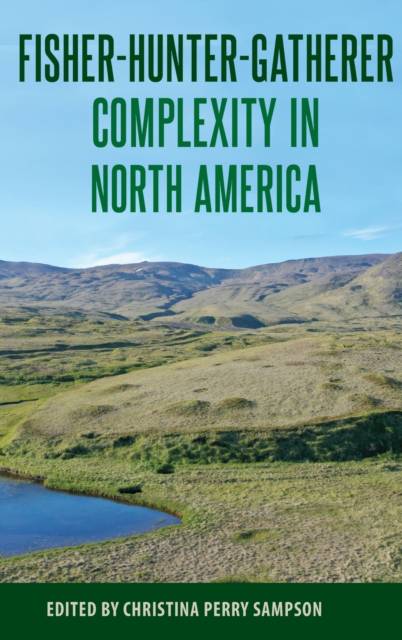
- Afhalen na 1 uur in een winkel met voorraad
- Gratis thuislevering in België vanaf € 30
- Ruim aanbod met 7 miljoen producten
- Afhalen na 1 uur in een winkel met voorraad
- Gratis thuislevering in België vanaf € 30
- Ruim aanbod met 7 miljoen producten
Fisher-Hunter-Gatherer Complexity in North America
Omschrijving
among complex hunter-gatherer communities in coastal settings
This book explores the forms and trajectories of social complexity among fisher-hunter-gatherers who lived in coastal, estuarine, and riverine settings in precolumbian North America. Through case studies from several different regions and intellectual traditions, the contributors to this volume collectively demonstrate remarkable variation in the circumstances and histories of complex hunter-gatherers in maritime environments.
The volume draws on archaeological research from the North Pacific and Alaska, the Pacific Northwest coast and interior, the California Channel Islands, and the southeastern U.S. and Florida. Contributors trace complex social configurations through monumentality, ceremonialism, territoriality, community organization, and trade and exchange. They show that while factors such as boat travel, patterns of marine and riverine resource availability, and sedentism and village formation are common unifying threads across the continent, these factors manifest in historically contingent ways in different contexts.
Fisher-Hunter-Gatherer Complexity in North America offers specific, substantive examples of change and transformation in these communities, emphasizing the wide range of complexity among them. It considers the use of the term complex hunter-gatherer and what these case studies show about the value and limitations of the concept, adding nuance to an ongoing conversation in the field.
Contributors: J. Matthew Compton C. Trevor Duke Mikael Fauvelle Caroline Funk
Colin Grier Ashley Hampton Bobbi Hornbeck Christopher S. Jazwa Tristram
R. Kidder Isabelle H. Lulewicz Jennifer E.
Perry Christina Perry Sampson Thomas J. Pluckhahn Anna Marie Prentiss Scott D. Sunell Ariel Taivalkoski Victor
D. Thompson Alexandra Williams-Larson A volume
in the series Society and Ecology in Island and Coastal Archaeology, edited by
Victor D. Thompson and Scott M. Fitzpatrick
Specificaties
Betrokkenen
- Uitgeverij:
Inhoud
- Aantal bladzijden:
- 274
- Taal:
- Engels
- Reeks:
Eigenschappen
- Productcode (EAN):
- 9780813069647
- Verschijningsdatum:
- 18/04/2023
- Uitvoering:
- Hardcover
- Formaat:
- Genaaid
- Afmetingen:
- 152 mm x 229 mm
- Gewicht:
- 535 g

Alleen bij Standaard Boekhandel
Beoordelingen
We publiceren alleen reviews die voldoen aan de voorwaarden voor reviews. Bekijk onze voorwaarden voor reviews.










